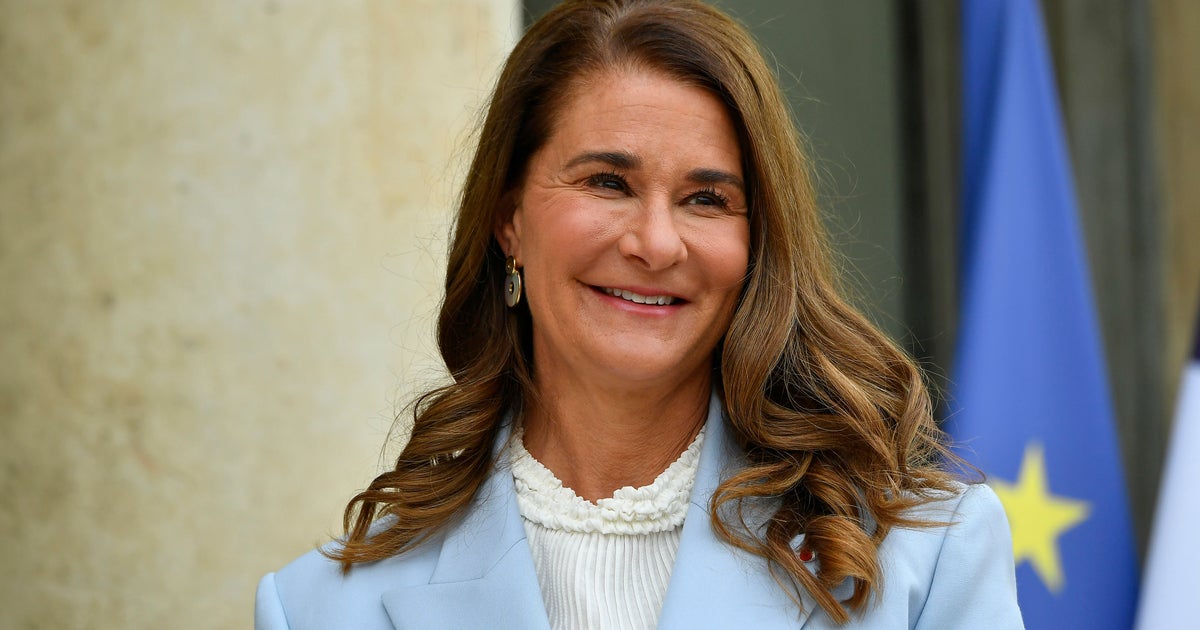"Countdown bin Laden": Obama's pursuit of the 9/11 mastermind
The 2011 military assault on Osama bin Laden's compound in Abbottabad, Pakistan, was so successful, it is possible to forget how difficult the U.S. Navy SEAL mission really was.
"The SEAL team that went into this, they didn't think they would make it back," said CBS News correspondent John Dickerson.
"That was a surprise to me," said Fox News anchor Chris Wallace. "One of the top CIA operatives, back watching the drone view back at Langley, at CIA Headquarters, fully expected that he was gonna see the compound just explode like a Jerry Bruckheimer action movie — that the whole place was just gonna blow up."
The SEALs didn't know if bin Laden would even be there, and (if he was) if he'd be ringed by tripwires, bodyguards, and maybe Pakistani troops.
"In fact, [Rob] O'Neill called his particular team of the SEALs 'The Martyrs Brigade,' because he thought, 'We're gonna go out there, we're gonna do it, we're gonna avenge 9/11, we're gonna bring bin Laden to justice, but there's no way we're getting home,'" Wallace said.
O'Neill, the Navy SEAL credited with killing bin Laden, is just one of the characters in Wallace's new book, "Countdown bin Laden" (published by Simon & Schuster, a division of ViacomCBS), that traces 247 days leading up to that fateful moment.
Wallace said, "The president is making a decision about a raid that's gonna endanger the lives of a couple of dozen SEALs; that threatens relations with a very important ally, Pakistan; and, not so incidentally, probably betting his presidency."
Dickerson asked, "Where do you put this one in the history of tough presidential calls?"
"In terms of just the process, the professionalism, the care, the meticulousness, this is right at the top," Wallace replied.
Wallace's account isn't just about night vision goggles and stairway firefights; it also follows the painstaking puzzlework done at lonesome cubicles and in windowless conference rooms.
Wallace said, "The old line, 'The harder you work, the luckier you get'? They had worked as hard as — I can't see anything more they could have done to give themselves a chance for success here."
It wasn't the only thing going on at the time, Wallace noted: "Obama has got a civil war in Libya; he's got the Arab Spring across the Middle East; he's got Donald Trump pushing the birther movement."
Four days before the raid, President Obama had to prove he was born in America.
"I'm speaking to the vast majority of the American people, as well as to the press: We do not have time for this kind of silliness," the president said. "We've got better stuff to do."
Wallace said, "It's true of every president. You don't get to decide what issues you're gonna deal with, what's gonna be on your plate today. You know, some of it you get to decide, but some of it is just incoming."
The clock was ticking. The longer the CIA worked to be certain they'd found bin Laden, the greater the chance they might spook him, losing the best chance they'd had in nine years.
Dickerson asked, "Were you conscious of the disconnect between what we see, and then what's really going on behind the scenes?"
"Absolutely," Wallace replied. "I mean, nobody had a clue. Remember, the night before the raid, Obama is at the White House Correspondents' Dinner. And he's taking off after Donald Trump because Trump has been propagating the birther theory. And he starts making fun of the decisions that Trump made on 'Celebrity Apprentice':
Mr. Obama: "But you, Mr. Trump, recognized that the real problem was a lack of leadership. And so ultimately, you didn't blame Lil' Jon or Meatloaf. You fired Gary Busey. And these are the kind of decisions that would keep me up at night."
"He's 24 hours from the biggest decision of his presidency," Wallace said. "And perhaps, it's either going to secure or eliminate the chances for his reelection."
It was the biggest decision for that president, but a typical presidential one: a choice where the chance for success was not much better than 50 percent, and even the best outcome was one where Americans were almost certain to die.
"I came to quite a different view of Obama through writing this book," Wallace said. "Did a lotta people think he was the candidate of hope and change and peace, and a dove? Yeah, but they didn't recognize how tough Obama was."
Admiral William McRaven, the head of U.S. Special Operations Command, was also surprised, as Wallace recalled: "One of the things that McRaven said is, 'I know the guy had never been in the military. But he was so discerning about what was important and what wasn't, and he knew his strengths and he knew his limits. He knew the stuff he didn't know, and he wasn't gonna presume or pretend that, you know, I'm more of a general than the generals.'"
Dickerson asked, "Given that, what do you think when leaders say, 'Well, I just trust my gut'?"
"I think they're damn fools," Wallace replied.
"Do you ever think some of the people who are running, or want to run, you think, 'They couldn't have handled this kind of challenge' that Obama faced, or that any president faces, when it really gets to the toughest things?"
"Yes," he replied.
As a presidential debate moderator, Wallace has thought a lot about what it takes to be president: "There are a lot of things about the presidency other than making these kinds of life-and-death decisions. But for the biggest things, the things like bin Laden, the things like getting out of Afghanistan and confronting North Korea and all of these things, there are gonna be crises, completely unforeseen crises. And the idea of thinking, really thinking, 'Could they handle that? Could they handle all of the incoming, all of the information, all of the pressure, all of the risks, all of the possibilities, and come to the right conclusion?' In the end, it's kind of a guess; you don't know until they're there. But it's a useful way to look at a potential president."
For more info:
- "Countdown bin Laden" by Chris Wallace with Mitch Weiss (Avid Reader Press/Simon & Schuster), in Hardcover, Large Print, eBook and Audio formats, available via Amazon and Indiebound
- "Fox News Sunday with Chris Wallace
Story produced by Ed Forgotson. Editor: Remington Korper.






